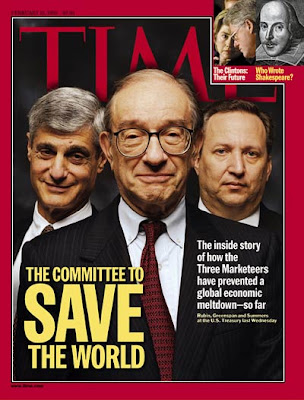Cote d'Ivoire : from success to failure a story of growth, specialization, and the terms of trade;
Summary: Real GDP per capita and capital stock in Cote d'Ivoire grew strongly from 1960 to 1979, but have declined ever since, for twenty-five years. As a result, the country has traveled a full circle from economic success to failure in little more than a generation. What are the long-term factors behind this dismal growth story? Are the Ivorian development problems mostly of recent origin? Or there are more fundamental, economic factors that explain its long term performance? Four principal conclusions are as follows: First, Cote d'Ivoire's long-term growth performance is not fully explained by temporary factors (e.g., CFA overvaluation or recent conflict). Longer term factors such as capital accumulation, productivity, and terms of trade are key to understanding the country's performance as is the policy of specialization in a single commodity--cocoa. Second, the long-term decline in per capita output started well before the currency overvaluation, and at a time of political stability, and is related to a major, secular deterioration in terms of trade that started after 1976. Third, total factor productivity estimates indicate that TFP per capita also grew until it hit a plateau in 1976-78, and then shrank thereafter, despite gains in human capital accumulation. Fourth, Cote d'Ivoire has pursued a policy of specialization in cocoa beans but this bet on a single commodity has ultimately failed. The strategy that brought prosperity during the 1970s resulted in a growth failure when cocoa prices began declining since 1976.
Cote d'Ivoire : competitiveness, cocoa, and the real exchange rate
Summary: This paper explores competitiveness of Cote d'Ivoire's economy over a long period of 1960-2003 and its link with cocoa prices. The main conclusions are as follows. First, using four measures of real effective exchange rate (REER) for the 1960-2002 period, we track the evolution of REER and conclude, inter alia, that until 2003, REER remained well below its 1994 level. Second, we find that based on our measure of the multilateral REER with dynamic weights, which covers most recorded trade, France no longer dominates Cote d'Ivoire's trade. Instead, Cote d'Ivoire has diversified its set of trading partners. Unfortunately, it has also specialized in one export product, raw cocoa. This paper aims to contribute to the question to what extent do cocoa prices affect Cote d'Ivoire's competitiveness in world trade? Third, the answer to this question is that cocoa prices are an important determinant of Cote d'Ivoire's competitiveness. Similar to the case of a classic "Dutch Disease," increases in the real world price of a "natural resource" (i.e., cocoa) tend to result in the appreciation of the CFA franc and a loss in competitiveness. Econometric tests further confirm that 1994 was a "break-point" not only for growth and productivity (as documented in the two related papers) but also for trade competitiveness. Recent productivity per worker trends versus wages also seem to indicate slow growth in 1996-2000, without major improvement in competitiveness.
Cote d'ivoire volatility, shocks and growth
Summary: Key economic variables in Cote d'Ivoire vary widely from their long-run trends, moving in multi-year cyclical patterns. Cocoa prices move with cycles in growth rates, capital stock, real exchange rates, terms of trade, cocoa production, and coffee production and output. These patterns have become more pronounced since the 1970s as volatility increased. This paper characterize these cycles, estimates the cocoa price-quantity relationship, and analyzes co-movements due to shocks generate a forecast. Three key conclusions follow. First, the economy of Cote d'Ivoire has experienced two fundamental transitions, one in 1976 related to cocoa, and another in 1994 related to exchange rates. From 1960 to 1976, world cocoa prices grew steadily, and then fell in real terms. The country's growth showed a similar pattern. An econometric model indicates that the relationship between cocoa price and quantity experienced a break in 1976 and provides evidence of Cote d'Ivoire's significant influence on world cocoa prices. Second, cocoa price shocks affect growth rates and trade indicators, and are important sources of volatility in the Cote d'Ivoire. The terms of trade and real exchange rate are also sources of volatility for growth and productivity. Third, a forecast of per-worker output based on these variables predicts continued declines in GDP per worker in Cote d'Ivoire for the near future. This dismal forecast implies the need for a radical and rapid improvement on political, security, and economic management to reverse the two and a half decades of economic decline.


